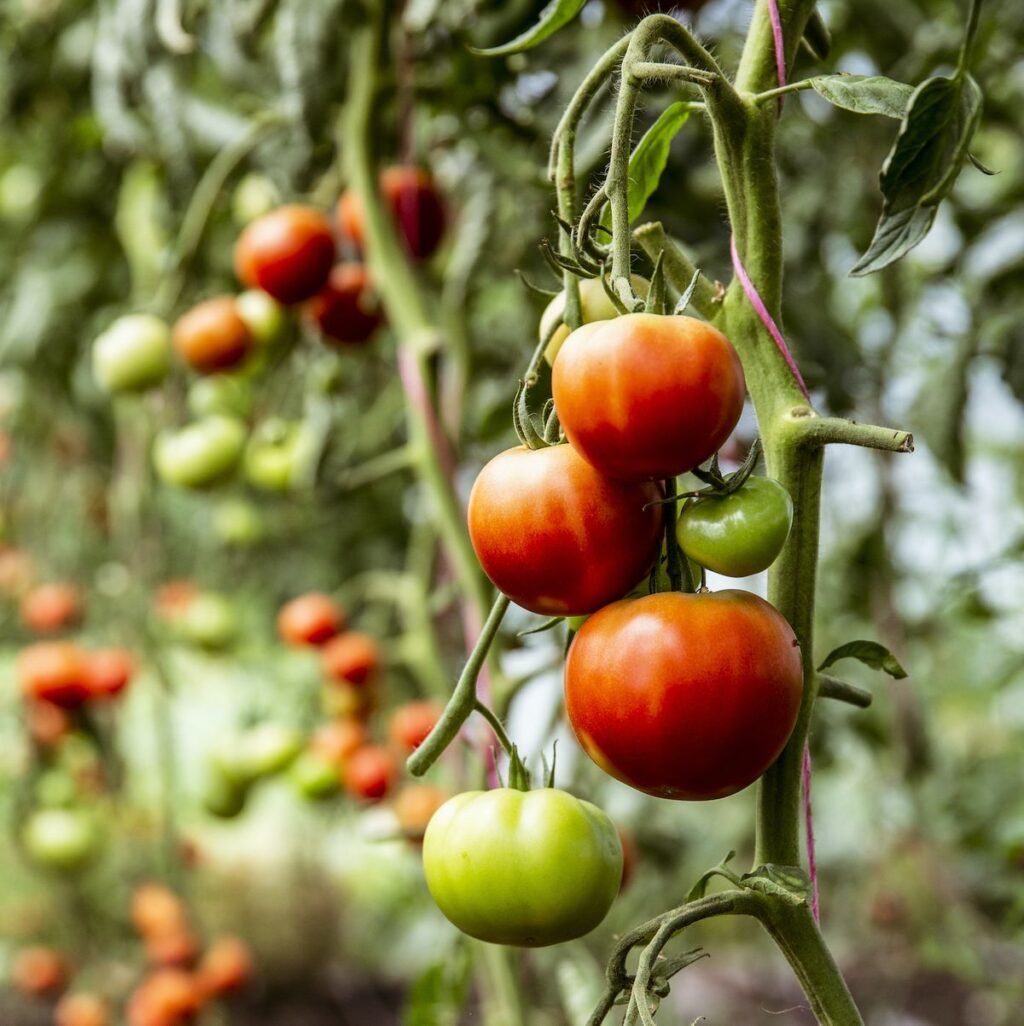Tomatoes have long been central to good nutrition and great cuisine on several continents, while sometimes triggering spirited debates over how to classify one of nature’s most versatile offerings.
Years ago, British journalist Miles Kington wrote: “Knowledge is knowing that a tomato is a fruit. Wisdom is not putting it in a fruit salad.”
We’re still learning from tomatoes, and about them. To illustrate: A study from a research team at the University of Barcelona found that organic tomatoes are far healthier than conventionally-grown varieties. The apparent reason? They’ve earned their nutrient-rich profiles the old-fashioned way, in the daily struggle to survive.
A more resilient plant (perhaps a cabbage?) might consider this type of “field experience” the school of hard knocks. Karen McCleave, a former Assistant Crown Attorney in the courts of Ontario, visits her local farmers markets in an enthusiastic quest for everything fresh, from heirloom tomatoes to garlic scapes. She has experienced the benefit of organic tomatoes for a long time, and believes that conventional farming methods have essentially made modern tomatoes fat and lazy. Organic farming results in a hardier tomato, a plant that relies on its natural defenses to thrive. Defensive compounds like polyphenols make the organic tomato much richer in nutrients than its chemical-fed cousins.
“It’s all about how hard it is for a plant to access nitrogen,” explains McCleave, an avid gardener and curious cook.
As the Spanish study highlights: With conventional farming practices, especially on farms owned by huge agribusinesses, plants are continually doused with nitrogen in the form of artificial fertilizer. Organic farmers don’t layer their crops with artificial compounds, and so the amount of nitrogen is less. This in turn triggers a natural defense reflex in plants which boosts levels of nutrients, minerals and secondary metabolites.
“That’s not only great for the plant, but wonderfully healthy for those of us at the top of the food chain,” notes McCleave. “It’s worth seeking out the artisanal tomato plants and seeds to grow organically. One of my favourites is a variety called The Mortgage Lifter. It has an interesting history. Check it out.”
Reporting on the University of Barcelona study, Science Daily described the benefits of organic cultivation, which builds the character of the young green orbs as they redden on the vine:
“Organic tomatoes contain higher levels of phenolic compounds than conventional tomatoes. Phenolic compounds are organic molecules found in many vegetables with proven human health benefits. Polyphenols — natural antioxidants of plant origin — are considered to be of great nutritional interest because its consumption is associated with reduced risk of cardiovascular and degenerative diseases, and some forms of cancer.”
University of Barcelona researcher Rosa M. Lamuela told the publication: “The benefit of taking polyphenols through foods is that they contain a wide variety of such molecules, which are increased. This would be more beneficial to health than the intake of supplements. Tomatoes also contain lycopene and other carotenoids, and vitamin C.”
The University of Barcelona team found that these dramatic nutritional differences are also apparent in tomato juice and ketchup. Whether in a drinking glass or condiment bottle, the organic variety is richer, healthier — and, Karen McCleave quickly adds — much more delicious. “An organic heirloom tomato from my garden is like a little black dress. Absolutely perfect on its own, but so easy to add ‘simple accessories’ like fresh basil, cold-pressed extra virgin olive oil, a grind of pepper and sea salt to really level it up!”
You may also like
-
Supply Chain Disruptions: Building Resilience in an Uncertain World
-
Effective Ways to Handle Insurance Claim Denials
-
5 Essential Strategies for Bolstering Customer Trust in Innovative Transportation Solutions
-
The power of Cheyanne Mallas’ social media education training programs!
-
Are you a good candidate for the EB Investor Immigration Program? Considering the Possibilities
 Risk Takers’ Playground: Navigating the Highs and Lows of Hedge Fund Hype
Risk Takers’ Playground: Navigating the Highs and Lows of Hedge Fund Hype  Learn More About Binance
Learn More About Binance  Mastering the Stock Market: Insights from a Professional Investor – Kavan Choksi Professional Investor
Mastering the Stock Market: Insights from a Professional Investor – Kavan Choksi Professional Investor 

